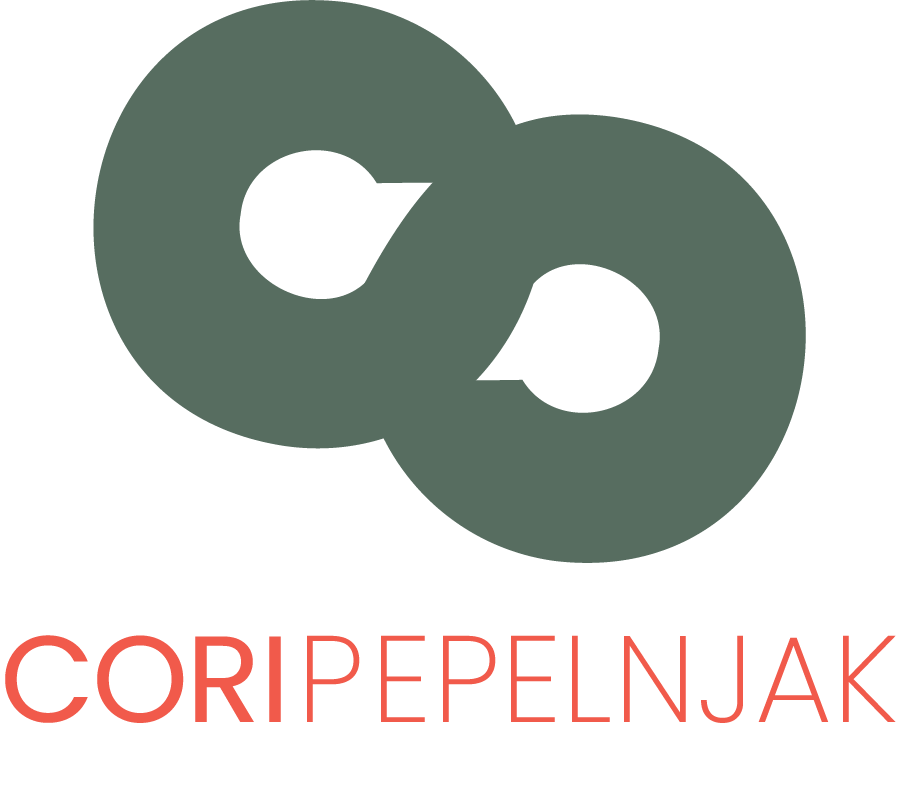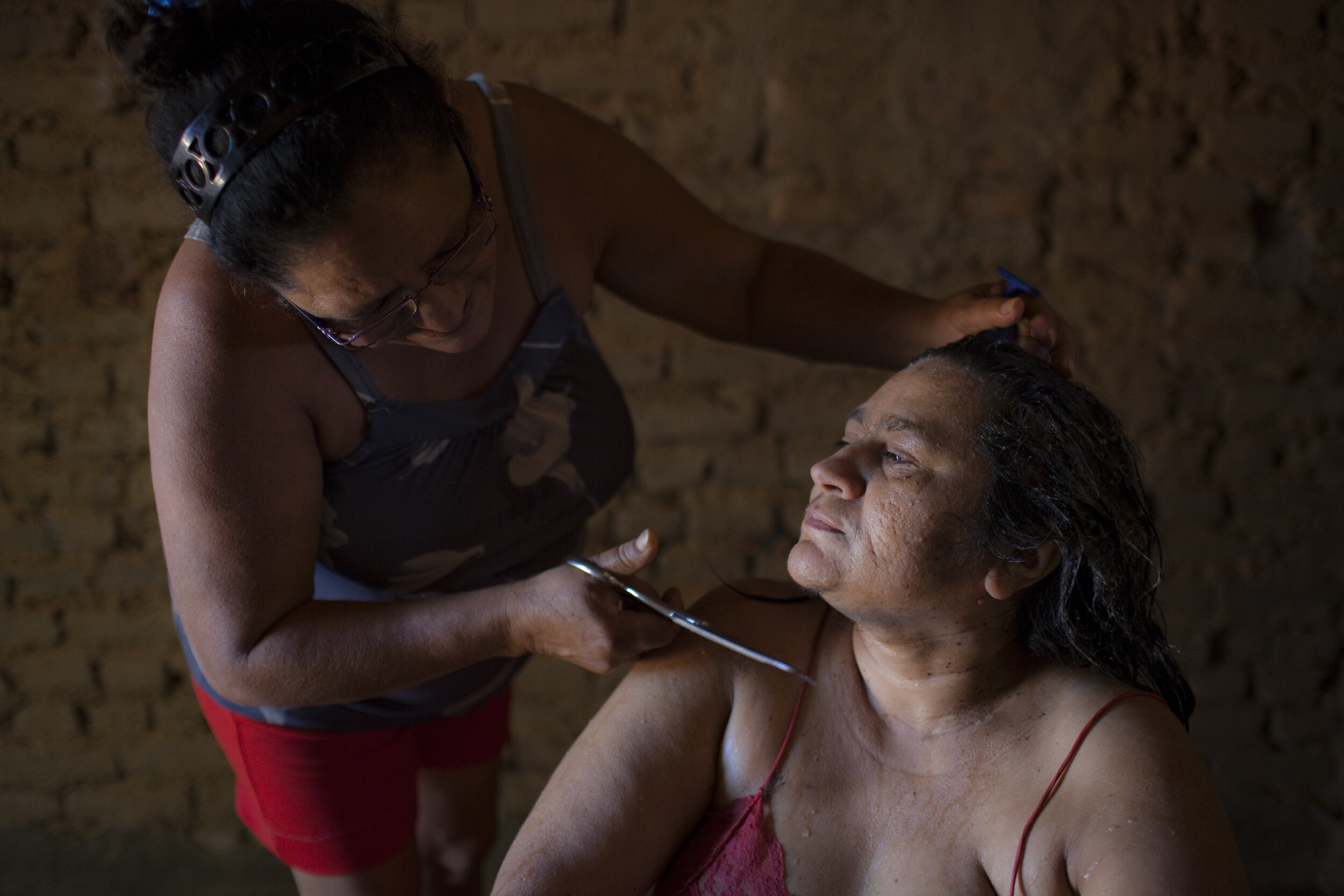In the Hands
“Caged. “Demon possessed.” Pastor Frank and his daughter translated. These words were repeated over and over…”
In the Hands
A crescendo: simple prayers, one overlaying another, leading to agitated devotions, to raised arms, and then bodies and faces over-wrought, with deafening cacophony of wailing, sobbing, and unintelligible words at the climax.
Precipitous prayer gatherings by the small motley crew of American-Brazilian Pentecostal missionaries, with whom I found myself embedded with a film crew, happened at a moment's notice. Whether it was around the broken-down VW bus that Pastor Frank, the enterprising and somewhat militant leader, used to transport his devotees or upon some flash mob of impoverished farmers under cover of night, these prayer-healing-exorcism occurrences were both compulsive and ceremonial.
These invocations always had an unnerving effect on me, but there was a particularly distressing one. We were in Pastor Frank's family's territory—the backlands of Northeast Brazil, a semi-arid region known as the sertão. In a sparse whitewashed living room of an elderly Pentecostal Pastor, the quaking cries and pleas, starting in Portuguese, morphed into a tongue unknown. The tears poured out of the devotees. Thirty minutes, an hour?
"Caged. "Demon possessed." Pastor Frank and his daughter translated. These words were repeated over and over. After calm returned, they explained for whom the prayers were for and why. A man and a woman, José and Maria, lived not far from this pastor's home, had been confined to cages for years, and it was their family members that put them there.
Frank conveyed a sense of thrill and believed that their prayers and the laying on of hands could save these two heartbreaking souls from their demonic possession. We were forbidden to go, which only increased our doubts. It was the first time in three sleepless days we were not included. Frank agreed to take a flip video camera to disprove our disbelief. What I witnessed on the pink plastic 2x2 inch video screen left me reeling.
To recount it now, it is more of an impression: the block of white in the foreground, Frank's crisp white shirt, approaching a crude earthen brick wall broken by vertical metal bars, madly wrapped in chains with brass locks, a desperately jammed branch, a thin stream running from under the door and breaking the dusty red plain. The video exposure shifts as it's pointed into the shadows beyond the chains and bars—Frank's long-white sleeve reaches through, a face. A striking face, a cowering posture. The sound was the muffled, repetitive prayers and wind: José; Em nome de Deus…Louvor de Jesus
For five more days, I was with the beleaguered film crew and the indefatigable Pentecostals. Every day was more bizarre than the one before. We had moved onto "saving" child prostitutes and attending a revival-type gathering in Canindé (home to an annual mass pilgrimage of Catholics). Still, the few minutes of video they took of José before the device's batteries died haunted me.
I returned to Brazil on my own three weeks later. I hired a brilliant translator, and together, we drove the deadly highway (known for kidnappings and even worse crimes) through the night to reach Pastor Frank. I knew he was finishing his final missionary work in a remote village, and I hoped my fervor would persuade him to introduce me to the "the caged people" and their families. It did.
Over three days, I spent small blocks of time with José, Maria, and their families. But, there was a third, Abrão, who was unknown to the Pentecostals.
José, whose voice quivered with fear from paranoid delusions, had lived locked up in the cell built adjacent to his parents' bare-bones abode for five years when I met him in 2010. Maria, who was allowed out on occasion, had grown comfortable over the dozen or so years she had lived in hers. Abrão had spent thirty-some-years naked and confined to his dirt and concrete quarters. José, Maria, and Abrão lived no more than a few miles apart as the crow flies. It was the mayor's son who came to my motel room, unplanned or unannounced, at seven in the morning to take me to meet this man, Abrão.
I can attest it is not demonic possession that plagues these individuals, but mental illness, such as schizophrenia. The Pentecostals may argue that those are one and the same. Abrão's case is a bit different. He was thrown from a horse as a young man. He initially received medical attention and lived independently for several years, but by his late twenties, early-thirties he was dependent on his family. As Abrão's brother-in-law bathed him, handcuffed to the bars on his door, he moved aside the soap lather to show me the scar.
Severe violent outbreaks eventually led all three families to construct "cells" to house their loved ones. They didn't want to send them far away to an institution where they would likely never see their son, daughter, or brother again and had little or no resources to support or educate themselves otherwise. The heartbreak, especially in José's parent's eyes, was agonizing.
The night I arrived home, I collapsed in the fetal position on the shower floor and let the water run over me as I sobbed. My head and heart were besieged. I couldn't separate how I met Maria, José, and Abrão from my experiences with them or their families. Much of my contemplation during the months following was on "being human" and the gross range of human experience.

























































